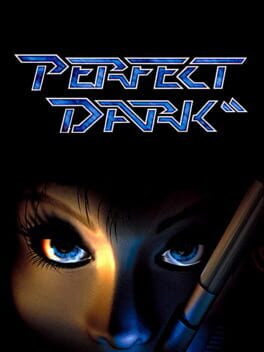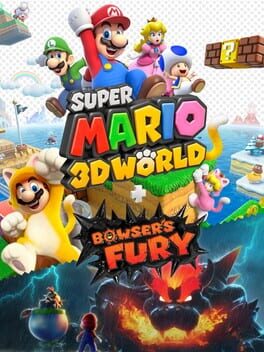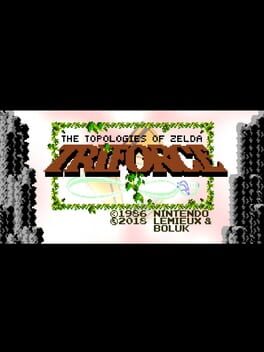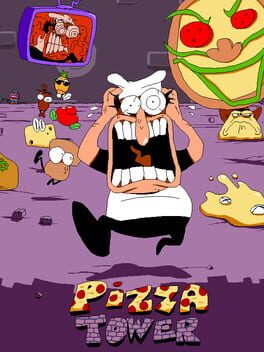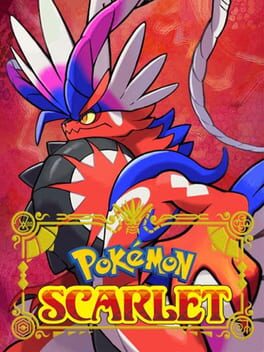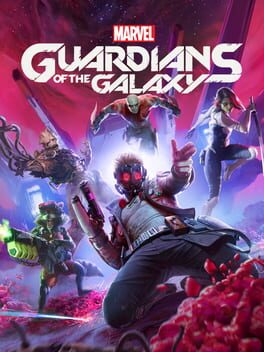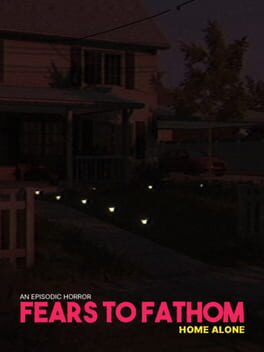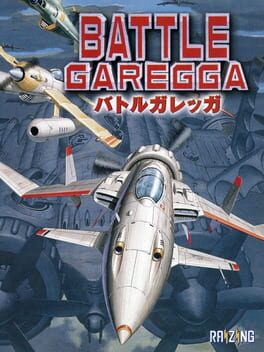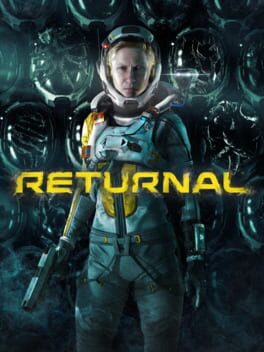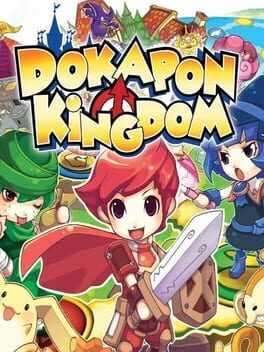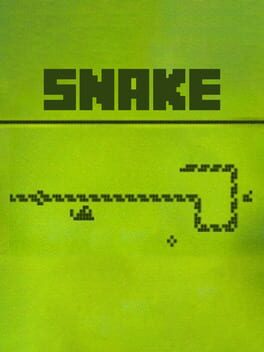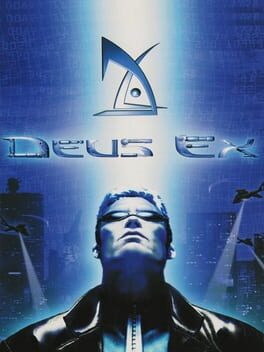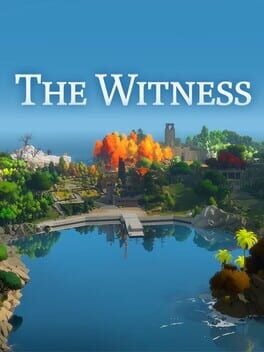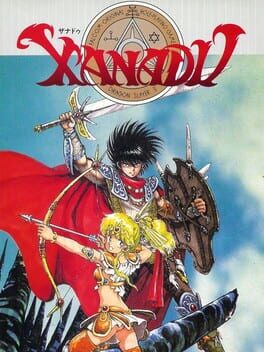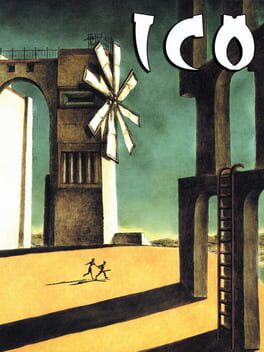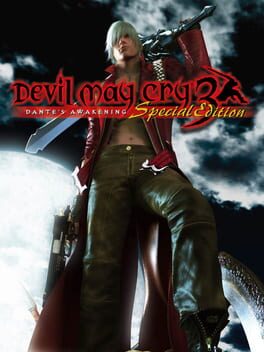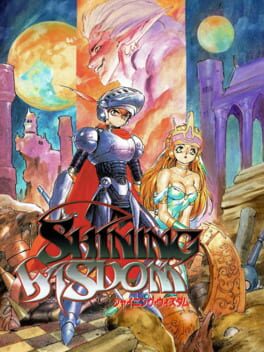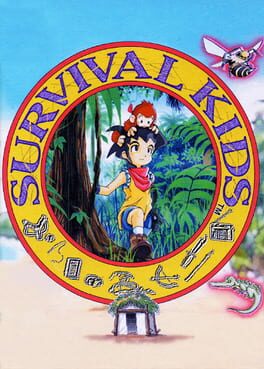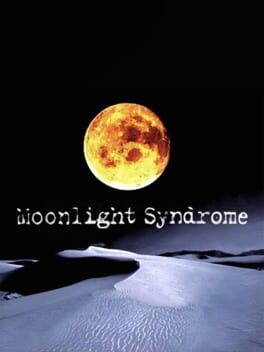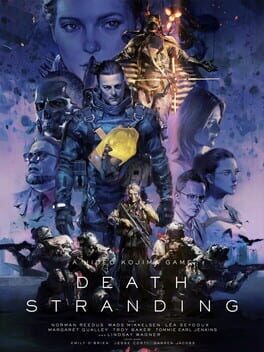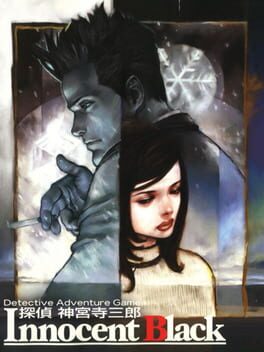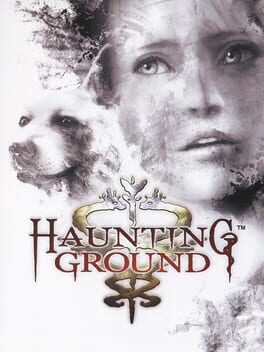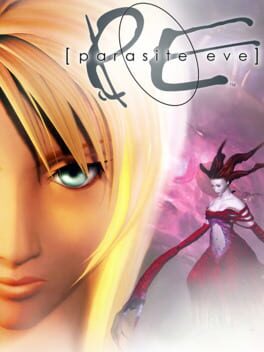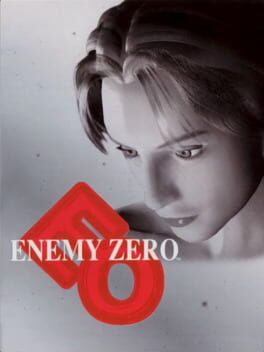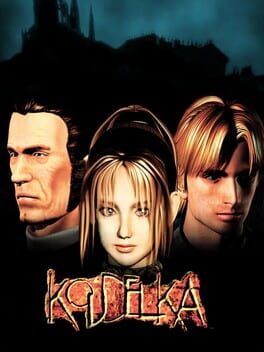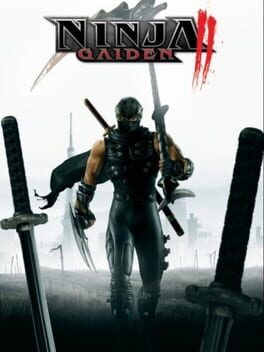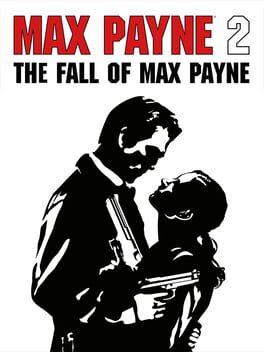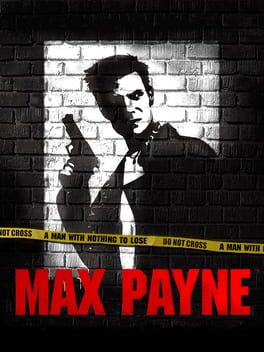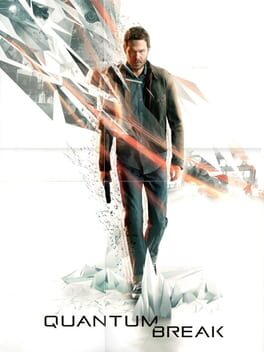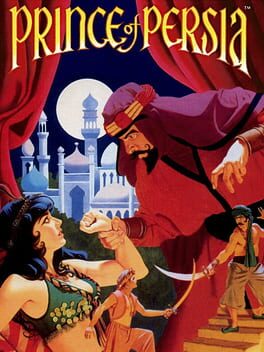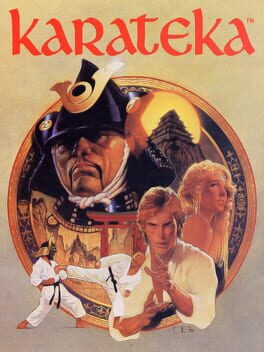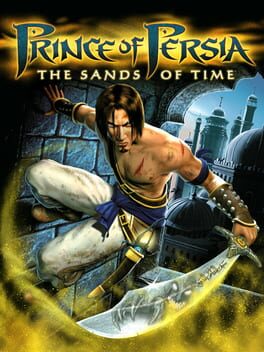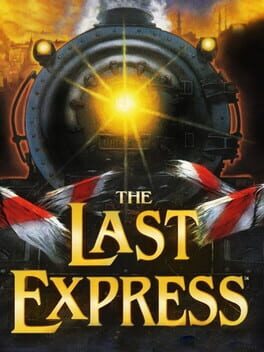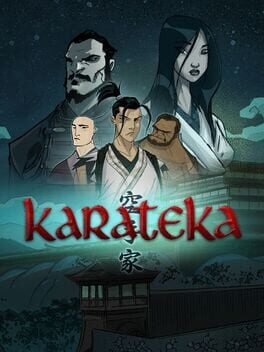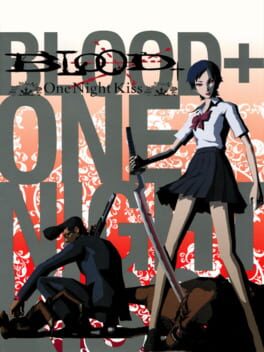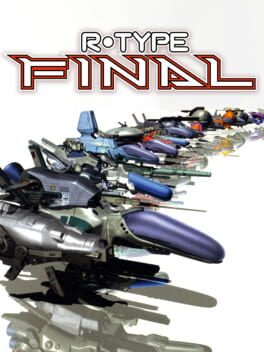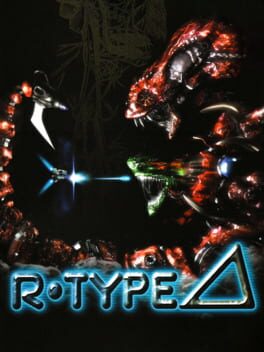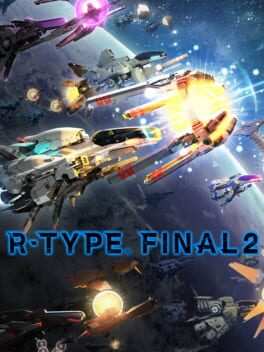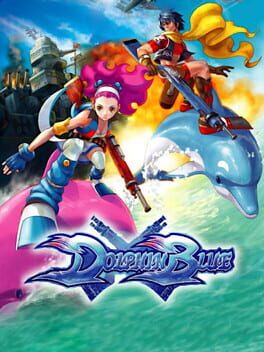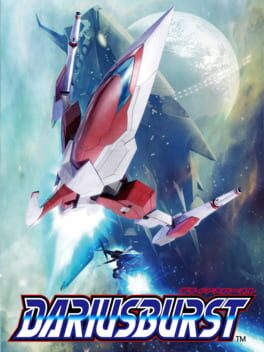Belukaing
107 reviews liked by Belukaing
Perfect Dark
2000
Goldeneye 007 was a bridge to a new philosophy of design and direction. but I had always understood that game more as a proto hitman(?)
-Seeing the state of the later fps that based their structures designed on the scripts to lock the player in a "moment to moment" of constant cinematographic linear stimulation, or in a constant return to emulate or restore the boomer shooter again .. I find this game very admirable.
seems to be more dedicated to its gelatinous and exploitative -almost parody- internal logic about how a spy should proceed in a video game, taking into account the most bombastic pop aesthetics and packaging it in a shooter.
-For me it works because it seems to reject to a certain extent the idea of levels as simple arenas or mazes where you can get lost to kill and score points and decides to focus on making the environments seem like places of certain spatial and functional logic within limited possibilities. Environments where gadgets play a tremendous role btw
but at the same time, as I said, the game knows that it wants to be a shooter and
It puts a lot of emphasis so that corners, stairs and doors are always hot spots for firefights in close quarters.
And I think that's the point, the diegetic excuse of the spies takes you away from hellscapes and battlefields to get into laboratories and rooms that replace the labyrinths and arenas of the most past shooters.
-Here I enjoy every shootout that more often than not seems like an archaic Gun-Fu confrontation in which I am vastly superior to my opponents - especially in the xbox360 version-
There's something very well built about Perfect Dark's gunplay that stands out in corner play. Taking cover for yourself, pulling the trigger a couple of times to shoot in a controlled manner at enemies that Joanna Dark targets almost automatically within the frame, reloading with that animation... It all adds up to articulating a fantasy of tactical action that if Holds a moment to moment with room to breathe
-Seeing the state of the later fps that based their structures designed on the scripts to lock the player in a "moment to moment" of constant cinematographic linear stimulation, or in a constant return to emulate or restore the boomer shooter again .. I find this game very admirable.
seems to be more dedicated to its gelatinous and exploitative -almost parody- internal logic about how a spy should proceed in a video game, taking into account the most bombastic pop aesthetics and packaging it in a shooter.
-For me it works because it seems to reject to a certain extent the idea of levels as simple arenas or mazes where you can get lost to kill and score points and decides to focus on making the environments seem like places of certain spatial and functional logic within limited possibilities. Environments where gadgets play a tremendous role btw
but at the same time, as I said, the game knows that it wants to be a shooter and
It puts a lot of emphasis so that corners, stairs and doors are always hot spots for firefights in close quarters.
And I think that's the point, the diegetic excuse of the spies takes you away from hellscapes and battlefields to get into laboratories and rooms that replace the labyrinths and arenas of the most past shooters.
-Here I enjoy every shootout that more often than not seems like an archaic Gun-Fu confrontation in which I am vastly superior to my opponents - especially in the xbox360 version-
There's something very well built about Perfect Dark's gunplay that stands out in corner play. Taking cover for yourself, pulling the trigger a couple of times to shoot in a controlled manner at enemies that Joanna Dark targets almost automatically within the frame, reloading with that animation... It all adds up to articulating a fantasy of tactical action that if Holds a moment to moment with room to breathe
This thing is good, but it is also the epitome of this increasingly predominant logic that Nintendo has with its present and its past, a toymaker one, and not a craftsman who cares with affection for his games and ideas put into his creations, rather like that of a luxury company that offers disposable and immediate products with a careful presentation.
Here is the new one of the toy known as "SUPER MARIO 3D WORLD WOHHOHHUHOOO", with improvements that will make you not want to go back to the original Wii U, in fact, they do not want you to, nor will they want you to go back to this version of switch when remaster it again on their next generation of hardware.
This logic extends to the entire game itself because its approach to action, while satisfying on the spot, also reveals how little real thought went into the designers working on such a solid and simple foundation as Super Mario. 3d Land- That game was in good health, but it was addictive like pringles-.
Why is there a multitasking button [Run], [Use Powerup],[Pick Up Player]
[Throw Things/Player] on a controller with so many buttons?
Probably no one thought of it, but in 3DLand it worked, so here too, right?
Yeah, no, the truth is that it doesn't work that well. With so many different power ups that alter the way the game space is operated, objects to throw, enemies that need to be dealt with in different ways, and, most importantly, a multiplayer in which all this is multiplied and also adds the possibility picking and throwing other players to win levels in the (seemingly) funniest and most creative way... One can't rely on a multitasking button, it's just impossible. Because obviously it's not just about the actions you can perform with your character, but how those actions relate to and impact the environment, or in this case -action platforms- what the environment demands of you as a player.
And precisely that, the environment, the levels, the world, Why is this game called 3D WORLD?
Not even the world map, probably the freest interplay of all the level-structured Super Marios, offers a sense of the world. It's a minor detail, and I don't have much problem with this, I think that the sensation of the digital world is achieved through more resources than simple physical literalness, but I also think it illustrates another point that was dealt with on autopilot.
The levels capture very well the texture of super mario in my opinion: color, fluffiness, sound... Joy as a whole.
But also full of ideas that, while creative and enjoyable, are also disposable almost the moment they are presented, more articulated around the mobility/attack variations provided by the Powerups than the jump itself, and that's a problem, because if you don't get the necessary powerup in advance the level design turns out to be a little soft, and that coupled with the problems of the multitasking button leaves some absurdly frustrating moments for a game that, if it had a better interactive layout, would be even easier than 3D LAND. Apart from the moments where the game tries to create a directed action sequence in which we have to fight a boss or stay on a platform on rails while the camera beats us - you go out of frame, you're dead - they make me sick, There is no redemption there, neither here nor in almost any platform game, it is an absurd way of killing pacing.
In the end, I liked the game, and I give it 4/5 because of Bowsers Fury and also because from time to time I actively look for a Toylogic game, that is just plain fun. I will probably come back to this game with friends.
--------------------------------------
I haven't been a Nintendo believer for a decade, but this way of supercharging its sequels with mechanics that born and die in the moment which a level takes place is a super evil company move
"duh, Nintendo is a company"
Yes, but even so I would dare to say that Nintendo has not had its own ideas or approaches since the 80s. Rather, it has offered quite innovative pieces of hardware (Nintendo DS?) to share -or even take advantage of- the ideas of others producing works of studies external or minor that would enrich their own corporate image as well as their catalogs
"well, sure, but Nintendo was always like that deep down"
Here is the new one of the toy known as "SUPER MARIO 3D WORLD WOHHOHHUHOOO", with improvements that will make you not want to go back to the original Wii U, in fact, they do not want you to, nor will they want you to go back to this version of switch when remaster it again on their next generation of hardware.
This logic extends to the entire game itself because its approach to action, while satisfying on the spot, also reveals how little real thought went into the designers working on such a solid and simple foundation as Super Mario. 3d Land- That game was in good health, but it was addictive like pringles-.
Why is there a multitasking button [Run], [Use Powerup],[Pick Up Player]
[Throw Things/Player] on a controller with so many buttons?
Probably no one thought of it, but in 3DLand it worked, so here too, right?
Yeah, no, the truth is that it doesn't work that well. With so many different power ups that alter the way the game space is operated, objects to throw, enemies that need to be dealt with in different ways, and, most importantly, a multiplayer in which all this is multiplied and also adds the possibility picking and throwing other players to win levels in the (seemingly) funniest and most creative way... One can't rely on a multitasking button, it's just impossible. Because obviously it's not just about the actions you can perform with your character, but how those actions relate to and impact the environment, or in this case -action platforms- what the environment demands of you as a player.
And precisely that, the environment, the levels, the world, Why is this game called 3D WORLD?
Not even the world map, probably the freest interplay of all the level-structured Super Marios, offers a sense of the world. It's a minor detail, and I don't have much problem with this, I think that the sensation of the digital world is achieved through more resources than simple physical literalness, but I also think it illustrates another point that was dealt with on autopilot.
The levels capture very well the texture of super mario in my opinion: color, fluffiness, sound... Joy as a whole.
But also full of ideas that, while creative and enjoyable, are also disposable almost the moment they are presented, more articulated around the mobility/attack variations provided by the Powerups than the jump itself, and that's a problem, because if you don't get the necessary powerup in advance the level design turns out to be a little soft, and that coupled with the problems of the multitasking button leaves some absurdly frustrating moments for a game that, if it had a better interactive layout, would be even easier than 3D LAND. Apart from the moments where the game tries to create a directed action sequence in which we have to fight a boss or stay on a platform on rails while the camera beats us - you go out of frame, you're dead - they make me sick, There is no redemption there, neither here nor in almost any platform game, it is an absurd way of killing pacing.
In the end, I liked the game, and I give it 4/5 because of Bowsers Fury and also because from time to time I actively look for a Toylogic game, that is just plain fun. I will probably come back to this game with friends.
--------------------------------------
I haven't been a Nintendo believer for a decade, but this way of supercharging its sequels with mechanics that born and die in the moment which a level takes place is a super evil company move
"duh, Nintendo is a company"
Yes, but even so I would dare to say that Nintendo has not had its own ideas or approaches since the 80s. Rather, it has offered quite innovative pieces of hardware (Nintendo DS?) to share -or even take advantage of- the ideas of others producing works of studies external or minor that would enrich their own corporate image as well as their catalogs
"well, sure, but Nintendo was always like that deep down"
Because in the end the world is a space to solve.
Sometimes with logic, sometimes with perspective, sometimes with force, sometimes by listening.
there is nature, but naturalistic logic is a lie. at least in modern life.
Curiously, puzzling the orientation and twisting the land we walk on -in the shape of a Donut, the industrial shape- the perspective reveals that there were no forests on earth, we made the forests, we imagined the height of that mountain. They suggested us, we accepted.
There are shades between "natural" progression and satisfying progression. we often confuse them.
This is very pessimistic, but I think that what defines us as people is usually the lies and truths that we accept.
Sometimes with logic, sometimes with perspective, sometimes with force, sometimes by listening.
there is nature, but naturalistic logic is a lie. at least in modern life.
Curiously, puzzling the orientation and twisting the land we walk on -in the shape of a Donut, the industrial shape- the perspective reveals that there were no forests on earth, we made the forests, we imagined the height of that mountain. They suggested us, we accepted.
There are shades between "natural" progression and satisfying progression. we often confuse them.
This is very pessimistic, but I think that what defines us as people is usually the lies and truths that we accept.
Pizza Tower
2023
-With the nerves to the limit, but with a smooth movement, justified by the style of animation. I don't know, I see it as a bit contradictory to the crazy and animated world that the game poses
-I haven't played any Wario Land, but here the approach of the double level design (hit and run) in communion with the two possible forms of mobility, until the two collide with each other, is super interesting.
but, there is the problem, that they collide in what I intuit is an impossibility to get rid of their formative references in terms of a "genre", called "the platformers".
The idea of scoring through collecting and other chores at levels that force you to fluctuate between jumping, speed and momentum does not seem very appropriate to me if at the least I fail I have to repeat a sequence of three heights and four platforms, for very funny and schizophrenic that are the crash and fall animations.
Between the seams of the game, a speerun logic almost appears?
I don't see the great Peppino spaghetti being an avatar of total control in chaos, rather I see him suffering from chaos, heck, that's how the protagonist seems to be presented, as someone on the verge of sanity, breaking with everything he knows. crosses.
-So vacuously it has been possible to attribute to Signalis that its structure is a mixture without substance (partially correct, but I don't see it badly for a game whose one of its main reasons is "memory" as a concept) beyond the visual, I think this could perfectly apply to Pizza Tower: the weight, the speed and the alleys and unthinkable traps of Sonic with the framework of Wario Land? (I intuit, I reiterate that I have not played)
But I find another similarity with Sonic: the divergence between character concept and game concept.
you already know
Speed vs Caution in Sonic
Chaos and humor vs Control and some precision in Pizza Tower
Am I the only one who feels this?
-The mixture is quite satisfactory, but why would that be enough?
-usually the internal coherences matter very little to me, and I hate applying the operational sense of the real world, I prefer the expression and the personality, at any cost. but here I find the expression in the same way as some contemporary games that rely entirely on the animations of their characters. And that's not bad at all, it's completely fine but I didn't find a situation where the comedy came from the game design instead of the characters and their animations. It's a bit picky, but I feel the same way I do when I watch one of the new Pixar-like CGI animated movies, with little interest in cinematography and space-time relationships.
I love the energy of this game, but at the same time it leaves me super cold
-I haven't played any Wario Land, but here the approach of the double level design (hit and run) in communion with the two possible forms of mobility, until the two collide with each other, is super interesting.
but, there is the problem, that they collide in what I intuit is an impossibility to get rid of their formative references in terms of a "genre", called "the platformers".
The idea of scoring through collecting and other chores at levels that force you to fluctuate between jumping, speed and momentum does not seem very appropriate to me if at the least I fail I have to repeat a sequence of three heights and four platforms, for very funny and schizophrenic that are the crash and fall animations.
Between the seams of the game, a speerun logic almost appears?
I don't see the great Peppino spaghetti being an avatar of total control in chaos, rather I see him suffering from chaos, heck, that's how the protagonist seems to be presented, as someone on the verge of sanity, breaking with everything he knows. crosses.
-So vacuously it has been possible to attribute to Signalis that its structure is a mixture without substance (partially correct, but I don't see it badly for a game whose one of its main reasons is "memory" as a concept) beyond the visual, I think this could perfectly apply to Pizza Tower: the weight, the speed and the alleys and unthinkable traps of Sonic with the framework of Wario Land? (I intuit, I reiterate that I have not played)
But I find another similarity with Sonic: the divergence between character concept and game concept.
you already know
Speed vs Caution in Sonic
Chaos and humor vs Control and some precision in Pizza Tower
Am I the only one who feels this?
-The mixture is quite satisfactory, but why would that be enough?
-usually the internal coherences matter very little to me, and I hate applying the operational sense of the real world, I prefer the expression and the personality, at any cost. but here I find the expression in the same way as some contemporary games that rely entirely on the animations of their characters. And that's not bad at all, it's completely fine but I didn't find a situation where the comedy came from the game design instead of the characters and their animations. It's a bit picky, but I feel the same way I do when I watch one of the new Pixar-like CGI animated movies, with little interest in cinematography and space-time relationships.
I love the energy of this game, but at the same time it leaves me super cold
Pokémon Scarlet
2022
In the first hour of the game, there is a script where the ground collapses and the game expects you to fall into a hole. its so sad.
I didn't fall, but the game had a dialogue programmed with groans. The game assumed that you had fallen into the scripted trap.
It is incredible how the AAA pop have appropriated the narrative resources more typical of the indies of the beginning of the last decade. Those that allowed you to explore the space in a more reduced and detailed way, interacting with small objects on a stage, only to end up mixing it with Walkie Talkie sections and Voilà, you already have your cinematographic level.
Actually, an older version of space exploration reduced but exhaustive through the details already existed in the blockbusters since the late 90s (Shenmue? , MGS 2-4 maybe?) but they were never so frequent.
because the exploration can be slightly guided, since the digital worlds are a powerful and wonderful ultra-designed lie... But dictated? no plz
This game drowns you with absolutely all the trends it can afford, leaving no room for thought. grabs you by the neck without conviction, with such a corporate plan. its scary.
I'm on board for narrative-driven pop games (gosh, I love MGS4) but I need A LITTLE bit of authoring.
I didn't fall, but the game had a dialogue programmed with groans. The game assumed that you had fallen into the scripted trap.
It is incredible how the AAA pop have appropriated the narrative resources more typical of the indies of the beginning of the last decade. Those that allowed you to explore the space in a more reduced and detailed way, interacting with small objects on a stage, only to end up mixing it with Walkie Talkie sections and Voilà, you already have your cinematographic level.
Actually, an older version of space exploration reduced but exhaustive through the details already existed in the blockbusters since the late 90s (Shenmue? , MGS 2-4 maybe?) but they were never so frequent.
because the exploration can be slightly guided, since the digital worlds are a powerful and wonderful ultra-designed lie... But dictated? no plz
This game drowns you with absolutely all the trends it can afford, leaving no room for thought. grabs you by the neck without conviction, with such a corporate plan. its scary.
I'm on board for narrative-driven pop games (gosh, I love MGS4) but I need A LITTLE bit of authoring.
Hi-Fi Rush
2023
This game mixes the textual and metatextual sense of spectacle in an admirable way.
Combat aside, it is very little spontaneous, despite being an action game. Everything has its tempo, and that leads to a routine.
Jump here when the obstacle allows it, shoot at this grid target, destroy the wall when the circles say so. Not my ideal adventure.
But
Overthrowing a megacorp requires a plan, and in the capitalist world there is very little room for freedom, for expression, to explode with music and colors... Does it have any aesthetic sense?
Poetry is made through its structure: the idea of visuals that seem to be ripped from a Jetix mid 2000 show in an explosive and colorful action game, driving a happy and carefree protagonist who literally has music in his heart and perceives The world through it, fight against machines and managers through offices and automated production floors brandishing a guitar made of scrap, which, strangely enough, takes on a pristine and ideal appearance the more we fight.
Although of course, it is better if we stick to the tempo that the world marks us (literally).
wow.
A very current dichotomy for those of us who grew up in the 2000s with the new wave of 3d action games -the misnamed """"hack n slash character action game stylisssh""" - with the new music distribution formats through Internet, the anime fansub booms and, above all, with the promises of a better future, social, labor and technological.
It doesn't matter if we look back in the days or to the future, now it sounds like utopia.
-----------------------
- Remake in the form of a mashup is something that attracts me. I see it as more honest reinterpretation than trying to be "the new standard" by holding on to past ideas.
It allows authors/programmers to be recognized as people and establishes links of understanding with them and with a medium without a real canon.
For me, Hi fi Rush is closer to Bravely Default, Tunic, Assault Spy or Spark The Electric Jester 3 than Hollow Knight, Drainus or anything from Team Ladybug because it rips off a piece of time and to articulate a fantasy that goes back to a happy and fleeting time (the truth is that at the governmental and economic level the 2000s were pretty fucked up in their last stretch) not to entrench themselves in them, but to introspect how memory is intermingled with the present. and it only takes a couple of hours of gameplay to understand this.
I guess I see it similar to all those people who say "wow its like ps2 game!"
maybe.
I haven't had a chance to play Astral Chain but I think it's beautiful that Taura ripped a piece of Japanese pop culture from Tokusatsu and Sci-fi anime (misunderstood as "cyberpunk") and made a game where the simple activity of watching and walking the streets is on the same level as the action.
Build their universes based on formative references or young fetishes. Because nowadays, how many adults have time to discover and be as passionate as when they were children? It's not vulgar nostalgia, it's the sad life cycle that some people find themselves in.
-Although I think that the planning of the game and its fiction point to the precarious and inhuman reality in which we live, articulated as a capitalist critique for children (this is good), everything is too scripted. Not condescending, patterned.
Navigating the stages is a tedious low-key and unsophisticated score, while the combat is a good jam session where finding your own rhythm and fitting it in with the world becomes a wonderful thing.
Although to be honest, this part of combat is not something new
At least if, like me, you grew up with Bloody Palace and God Hand while your mother listened to bootleg CDs of Sleater Kinney and Linkin Park at high volume?
I don't know, I don't see this being the game I return to repeatedly with my mixtapes... in a few years maybe
But I like this game, it's not the passion project they're trying to sell us, but it certainly has passion on it.
and bonus points for using Whirring as a killer track.
lovely
https://www.youtube.com/watch?v=a2BUEzdjfpY
Combat aside, it is very little spontaneous, despite being an action game. Everything has its tempo, and that leads to a routine.
Jump here when the obstacle allows it, shoot at this grid target, destroy the wall when the circles say so. Not my ideal adventure.
But
Overthrowing a megacorp requires a plan, and in the capitalist world there is very little room for freedom, for expression, to explode with music and colors... Does it have any aesthetic sense?
Poetry is made through its structure: the idea of visuals that seem to be ripped from a Jetix mid 2000 show in an explosive and colorful action game, driving a happy and carefree protagonist who literally has music in his heart and perceives The world through it, fight against machines and managers through offices and automated production floors brandishing a guitar made of scrap, which, strangely enough, takes on a pristine and ideal appearance the more we fight.
Although of course, it is better if we stick to the tempo that the world marks us (literally).
wow.
A very current dichotomy for those of us who grew up in the 2000s with the new wave of 3d action games -the misnamed """"hack n slash character action game stylisssh""" - with the new music distribution formats through Internet, the anime fansub booms and, above all, with the promises of a better future, social, labor and technological.
It doesn't matter if we look back in the days or to the future, now it sounds like utopia.
-----------------------
- Remake in the form of a mashup is something that attracts me. I see it as more honest reinterpretation than trying to be "the new standard" by holding on to past ideas.
It allows authors/programmers to be recognized as people and establishes links of understanding with them and with a medium without a real canon.
For me, Hi fi Rush is closer to Bravely Default, Tunic, Assault Spy or Spark The Electric Jester 3 than Hollow Knight, Drainus or anything from Team Ladybug because it rips off a piece of time and to articulate a fantasy that goes back to a happy and fleeting time (the truth is that at the governmental and economic level the 2000s were pretty fucked up in their last stretch) not to entrench themselves in them, but to introspect how memory is intermingled with the present. and it only takes a couple of hours of gameplay to understand this.
I guess I see it similar to all those people who say "wow its like ps2 game!"
maybe.
I haven't had a chance to play Astral Chain but I think it's beautiful that Taura ripped a piece of Japanese pop culture from Tokusatsu and Sci-fi anime (misunderstood as "cyberpunk") and made a game where the simple activity of watching and walking the streets is on the same level as the action.
Build their universes based on formative references or young fetishes. Because nowadays, how many adults have time to discover and be as passionate as when they were children? It's not vulgar nostalgia, it's the sad life cycle that some people find themselves in.
-Although I think that the planning of the game and its fiction point to the precarious and inhuman reality in which we live, articulated as a capitalist critique for children (this is good), everything is too scripted. Not condescending, patterned.
Navigating the stages is a tedious low-key and unsophisticated score, while the combat is a good jam session where finding your own rhythm and fitting it in with the world becomes a wonderful thing.
Although to be honest, this part of combat is not something new
At least if, like me, you grew up with Bloody Palace and God Hand while your mother listened to bootleg CDs of Sleater Kinney and Linkin Park at high volume?
I don't know, I don't see this being the game I return to repeatedly with my mixtapes... in a few years maybe
But I like this game, it's not the passion project they're trying to sell us, but it certainly has passion on it.
and bonus points for using Whirring as a killer track.
lovely
https://www.youtube.com/watch?v=a2BUEzdjfpY
Death Stranding
2019
Some thoughts that I had stuck in my head:
Explore the world looking for a solution, a connection. Together. Maybe not physically, not by the same routes, maybe not delivering the same
It is difficult for Death Stranding to reach you playing it alone. Its nature emerges more easily online, and it's a great gesture and a statement of intent that you don't need a subscription to ps plus.
Kojima presents a digital world that is difficult to interpret and unite in words, a fiction that shoots directly into our reality.
Cursed, heartfelt, but also emotional. embrace the connections between things, but question them. a celebration of human duality
More prophetic than MGS2 and with better observation, generalizing and at the same time specifying the difficulties of our day to day, articulating them in the total art of videogames.
From the most abstract to the most literal, collective fears, traumas and very recognizable memories materialized. Visible, audible, and even palpable in an alien America full of dualities, of people who only intuit and show themselves through holograms and numbers.
But we are here. Maybe not next door, but in the same world. And the proof is the ladder that I have used to create an improvised bridge, I have left it here, for you, for me, for everyone. And that rope on the cliff, that capsule, that package on the ground. We are here.
Where the rejection of what forces us to leave this world is manifested in a kind of allergy for those who are more akin to these fears or have experienced them to the limit.
Where people are baptized for their present, for their office and condemned for their past. Where the heroes deliver packages and letters. They come to our futuristic shacks and install an esoteric Internet.
Everything is Sam Porter Bridges, whose name makes it STRONGLY EVIDENT what Death Stranding is about, and at the same time no, you cannot perfectly encompass anything as complex as earthly and afterlife connections, the natural and the mechanical, the Software and the Hardware, the "Ka" and "ha". reality and dreams. Much of Death Stranding's recontextualized iconography seems to suggest that.
It is a work that calls for thinking in an unprecedented way about it, because it offers an unprecedented reinterpretation of the transition and relationship with our environment, especially for gaming standards, obsessed with the mechanical-narrative relationship or the challenge, the suggestion and the satisfaction as a criterion to generate interpretations that are autopsies or descriptions. That in the best case.
At worst you have Far Cry 3.
Every species has the game in different facets and areas as a form of intellectual and emotional connection.
Children play and learn/relate, animals play to understand each other. We play to replace war.
Even before having sex we played.
Homo ludens. And Kojima welcomes a lot of this.
We need to be playful without losing focus.
There is no need for subtlety, just answer honestly to human questions. Use the forms of play as a response to the bitter obstacles of reality.
The example is the "Social Strand System", a mechanical reinterpretation of social networks where the game of deliveries and recovery of packages, manufactures and constructions has an impact on likes and statistics, but also on turning the environment into something more livable and peaceful, at the same time, shows that a more altruistic and ethical form of social interaction is possible.
It sounds naive to say that the reconstruction of the collective environment in an online video game is a lesson in altruism and community, even more so when there are likes involved, but the exercise of life begins somewhere, and now that we are waking up from this techno delirium -competitive utopian in which social networks had us flooded, now that we know how important they are to connect with each other more than to raise our ego, this "Social Strand System" shines more than in 2019.
Through the textures of slow gaming, an experiment of self-knowledge and updating is proposed, there is the unprecedented, in how the game confronts us with situations without necessarily connecting their thoughts or ideas and still achieving a certain cohesion. As in life, no one knows "what it is about" and yet we walk through it with what we own and what others leave for us.
And for a game that wants to embrace these themes without giving up the nature of its medium, its foundation, it's something really admirable.
-------------------
Not a single day goes by that I don't think about Death Stranding. Perhaps because of what has been happening in the world since 2020.
On arrival at Port Knot City.
How the corpses of people who have left explode, leaving an emotional and physical void in the form of a crater. Cities with people locked up, invisible. In the networks. In their inverted rainbows. How work becomes playing with its dozens of tools to transport, how enemies are my reflection, silence, likes, photos, stories... In life, how life can be everywhere.
And I can't even put into words practically anything that this game is for me. I plan to return to it in 2023 now that a sequel has been announced that begs the question: Should we have Connected?
Explore the world looking for a solution, a connection. Together. Maybe not physically, not by the same routes, maybe not delivering the same
It is difficult for Death Stranding to reach you playing it alone. Its nature emerges more easily online, and it's a great gesture and a statement of intent that you don't need a subscription to ps plus.
Kojima presents a digital world that is difficult to interpret and unite in words, a fiction that shoots directly into our reality.
Cursed, heartfelt, but also emotional. embrace the connections between things, but question them. a celebration of human duality
More prophetic than MGS2 and with better observation, generalizing and at the same time specifying the difficulties of our day to day, articulating them in the total art of videogames.
From the most abstract to the most literal, collective fears, traumas and very recognizable memories materialized. Visible, audible, and even palpable in an alien America full of dualities, of people who only intuit and show themselves through holograms and numbers.
But we are here. Maybe not next door, but in the same world. And the proof is the ladder that I have used to create an improvised bridge, I have left it here, for you, for me, for everyone. And that rope on the cliff, that capsule, that package on the ground. We are here.
Where the rejection of what forces us to leave this world is manifested in a kind of allergy for those who are more akin to these fears or have experienced them to the limit.
Where people are baptized for their present, for their office and condemned for their past. Where the heroes deliver packages and letters. They come to our futuristic shacks and install an esoteric Internet.
Everything is Sam Porter Bridges, whose name makes it STRONGLY EVIDENT what Death Stranding is about, and at the same time no, you cannot perfectly encompass anything as complex as earthly and afterlife connections, the natural and the mechanical, the Software and the Hardware, the "Ka" and "ha". reality and dreams. Much of Death Stranding's recontextualized iconography seems to suggest that.
It is a work that calls for thinking in an unprecedented way about it, because it offers an unprecedented reinterpretation of the transition and relationship with our environment, especially for gaming standards, obsessed with the mechanical-narrative relationship or the challenge, the suggestion and the satisfaction as a criterion to generate interpretations that are autopsies or descriptions. That in the best case.
At worst you have Far Cry 3.
Every species has the game in different facets and areas as a form of intellectual and emotional connection.
Children play and learn/relate, animals play to understand each other. We play to replace war.
Even before having sex we played.
Homo ludens. And Kojima welcomes a lot of this.
We need to be playful without losing focus.
There is no need for subtlety, just answer honestly to human questions. Use the forms of play as a response to the bitter obstacles of reality.
The example is the "Social Strand System", a mechanical reinterpretation of social networks where the game of deliveries and recovery of packages, manufactures and constructions has an impact on likes and statistics, but also on turning the environment into something more livable and peaceful, at the same time, shows that a more altruistic and ethical form of social interaction is possible.
It sounds naive to say that the reconstruction of the collective environment in an online video game is a lesson in altruism and community, even more so when there are likes involved, but the exercise of life begins somewhere, and now that we are waking up from this techno delirium -competitive utopian in which social networks had us flooded, now that we know how important they are to connect with each other more than to raise our ego, this "Social Strand System" shines more than in 2019.
Through the textures of slow gaming, an experiment of self-knowledge and updating is proposed, there is the unprecedented, in how the game confronts us with situations without necessarily connecting their thoughts or ideas and still achieving a certain cohesion. As in life, no one knows "what it is about" and yet we walk through it with what we own and what others leave for us.
And for a game that wants to embrace these themes without giving up the nature of its medium, its foundation, it's something really admirable.
-------------------
Not a single day goes by that I don't think about Death Stranding. Perhaps because of what has been happening in the world since 2020.
On arrival at Port Knot City.
How the corpses of people who have left explode, leaving an emotional and physical void in the form of a crater. Cities with people locked up, invisible. In the networks. In their inverted rainbows. How work becomes playing with its dozens of tools to transport, how enemies are my reflection, silence, likes, photos, stories... In life, how life can be everywhere.
And I can't even put into words practically anything that this game is for me. I plan to return to it in 2023 now that a sequel has been announced that begs the question: Should we have Connected?
18 lists liked by Belukaing
by Cold_Comfort |
10 Games
by Chwoka |
10 Games
by Ardwyw_mp3 |
10 Games
by Ardwyw_mp3 |
218 Games
by Ardwyw_mp3 |
84 Games
by Ardwyw_mp3 |
7 Games
by Ardwyw_mp3 |
6 Games
by Ardwyw_mp3 |
16 Games

